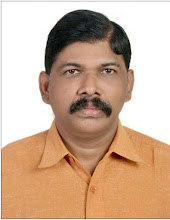In the last few years the lines between South Indian cinema including Tamil, Telugu, and Kannada have been blurred, thanks to the great diversity in content. It boosted Rohit Shetty’s adaptation of a Tamil film Singham (2011), followed by Ok Jaanu (2017), Drishyam (2015), Bhool Bhulaiyaa (2007), Kabir Singh (2019), and the Baahubali series, which finally broke the ice between the industries and opened the doors for makers to experiment with new subjects. In the series of films, director Prabhu Solomon, known for his films such as Kumki (2012), Thodari (2016) and Kayal (2014), is all set to take the audiences across India on a tryst with the earth with his upcoming multilingual film Haathi Mere Saathi releasing on March 26. Prabhu said that he was inspired to make Haathi Mere Saathi while making Kumki in 2012.
“I was researching for Kumki and learnt about what was happening to elephants in India and what is happening to them across the country. While analysing, I had decided to make a film on this subject. So, by the time Eros asked me for a story that showed conflict between man and elephant, I knew where it was,” says Prabhu. Haathi Mere Saathi is a true story based on a man fighting for the rights of elephants who were orphaned 10 years ago when Kaziranga’s land was sacrificed to local builders for commercial construction.
“I wanted to do something different than being the typical clichéd director who makes films where a hero fights for his heroine amid social customs. I realised and wanted to make something on the fight for nature,” says the director.
Also Read: Rana Daggubati talks about how he strives to stay inspired by being part of clutter-breaking cinema
While most Bollywood filmmakers are playing safe with the 'tried-and-tested’ content, Prabhu, on the other hand, was convinced that he wanted to make a film that satiates his creative thirst. “Rana [Daggubati] and I used to talk about this film and wonder if we may act or direct the film, but we were sure that someday we would contemplate this movie and feel satisfied. This is joint work for a good cause. Someone needs to be the voice for elephants,” he states.
The film stars Rana Daggubati as the protagonist along with Pulkit Samrat, Shriya Pilgaonkar, and Zoya Hussain in pivotal roles. Talking about the casting in the film, Prabhu says he wanted to stay away from the actors with star-status. “Rana was very apt for the character with his build and look. I wanted to work with hard-working actors who are not acute with being stars,” shares the director.
Making a film that encores itself around nature and the wild certainly wasn’t an easy job for Prabhu and actors as well. The cast and crew spent about a year in the rain forest, which according to the director benefitted them immensely. “While staying in the forest, writing, and shooting, I bonded with the trees and elephants around. I would write dialogues in my mind while seeing something around the forest or standing next to a tree. The environment played a strong role in developing the script in an impromptu manner. The actors, too, worked very hard to bring out the essence of it,” he gushes.
While the bridge between the industries has been built to lesser distances, there is a distinct difference in terms of content. Bollywood so far has a global subject line; while the southern industry still has close door subjects. He explains, “I can tell you about Tamil films where we want to be more regional. I want to say the stories of my soul as we are very attached to everything. We still have joint families and cultural associations. These things reflect on the scripts and creativity,” he explains. Do you think the audience is also different? “I think content plays a part. When a good content comes then the audience would go for it,” he says in conclusion.
Also Read: ‘I think of myself as a global actor,’ says 'Mirzapur' actor Shriya Pilgaonkar
from Free Press Journal https://ift.tt/3tGEouF
via IFTTT































0 comments:
Post a Comment